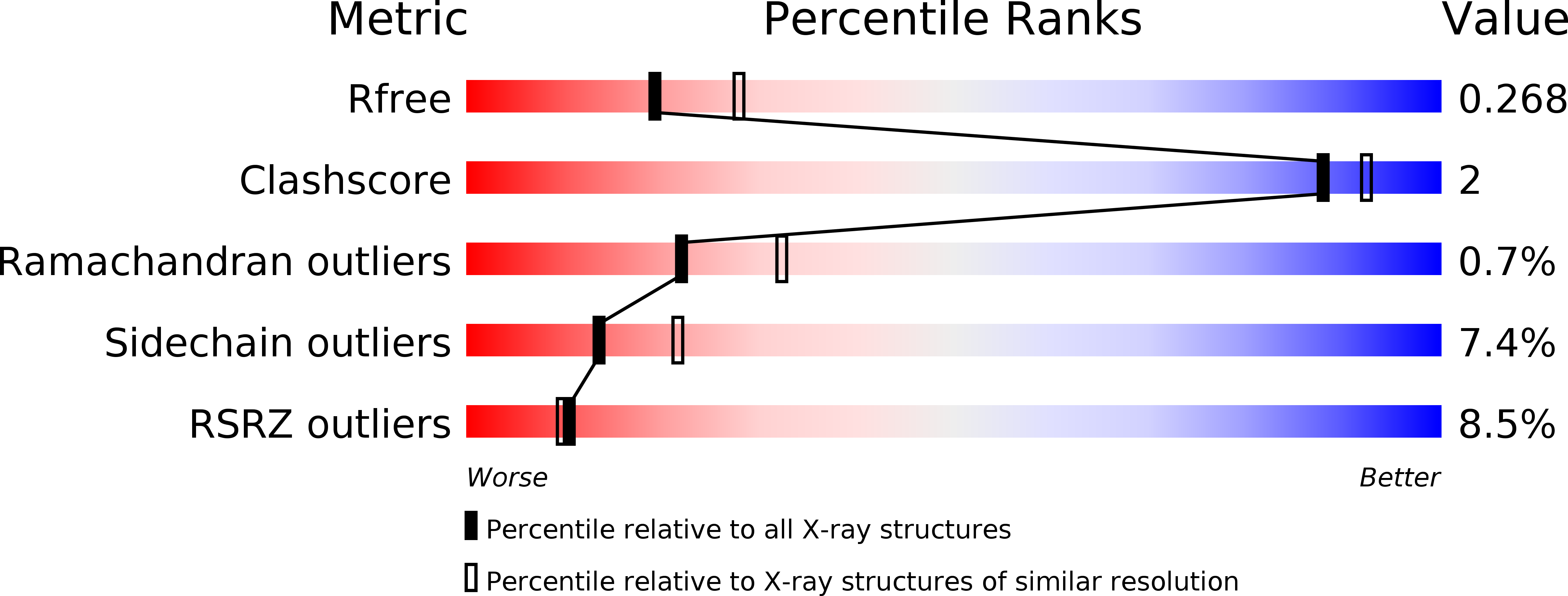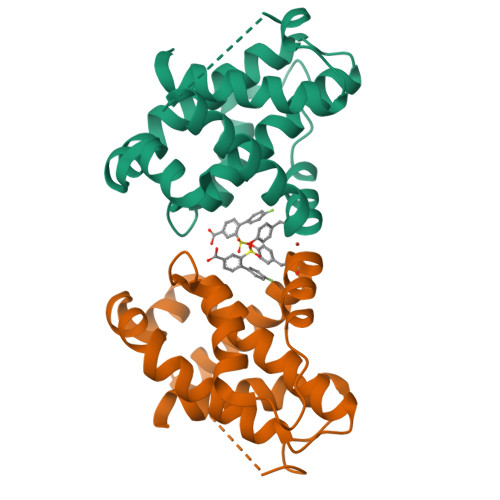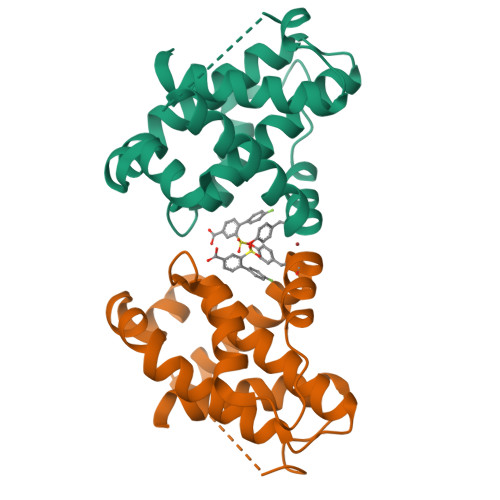Discovery and optimization of covalent Bcl-xL antagonists.
Mukherjee, H., Su, N., Belmonte, M.A., Hargreaves, D., Patel, J., Tentarelli, S., Aquila, B., Grimster, N.P.(2019) Bioorg Med Chem Lett 29: 126682-126682
- PubMed: 31606346
- DOI: https://doi.org/10.1016/j.bmcl.2019.126682
- Primary Citation of Related Structures:
6RNU - PubMed Abstract:
Over the last ten years, targeted covalent inhibition has become a key discipline within medicinal chemistry research, most notably in the development of oncology therapeutics. One area where this approach is underrepresented, however, is in targeting protein-protein interactions. This is primarily because these hydrophobic interfaces lack appropriately located cysteine residues to allow for standard conjugate addition chemistry. Herein, we report our development of the first covalent inhibitors of the antiapoptotic protein B-cell lymphoma extra-large (Bcl-xL), utilizing a sulfonyl fluoride (SF) warhead to selectively covalently modify tyrosine 101 of the BH3 domain-binding groove. These compounds display time-dependent inhibition in a biochemical assay and are cellularly active (U266B1). In addition, compound 7 was further elaborated to generate a chemical-biology probe molecule, which may find utility in understanding the intricacies of Bcl-xL biology.
Organizational Affiliation:
Oncology R&D, AstraZeneca, Waltham, USA.




















